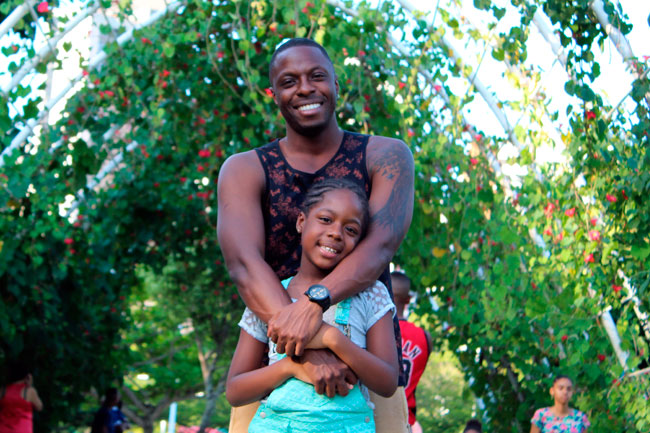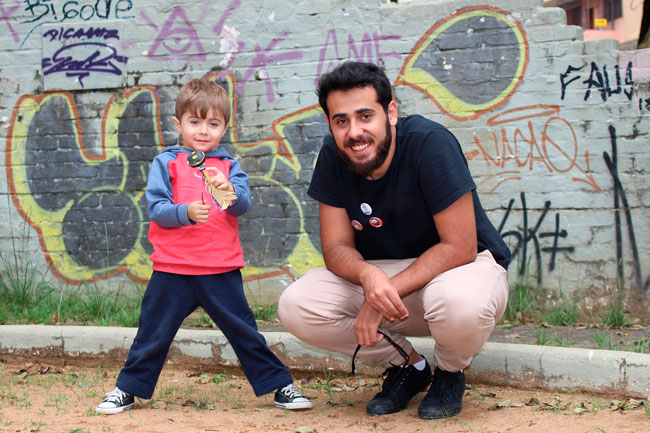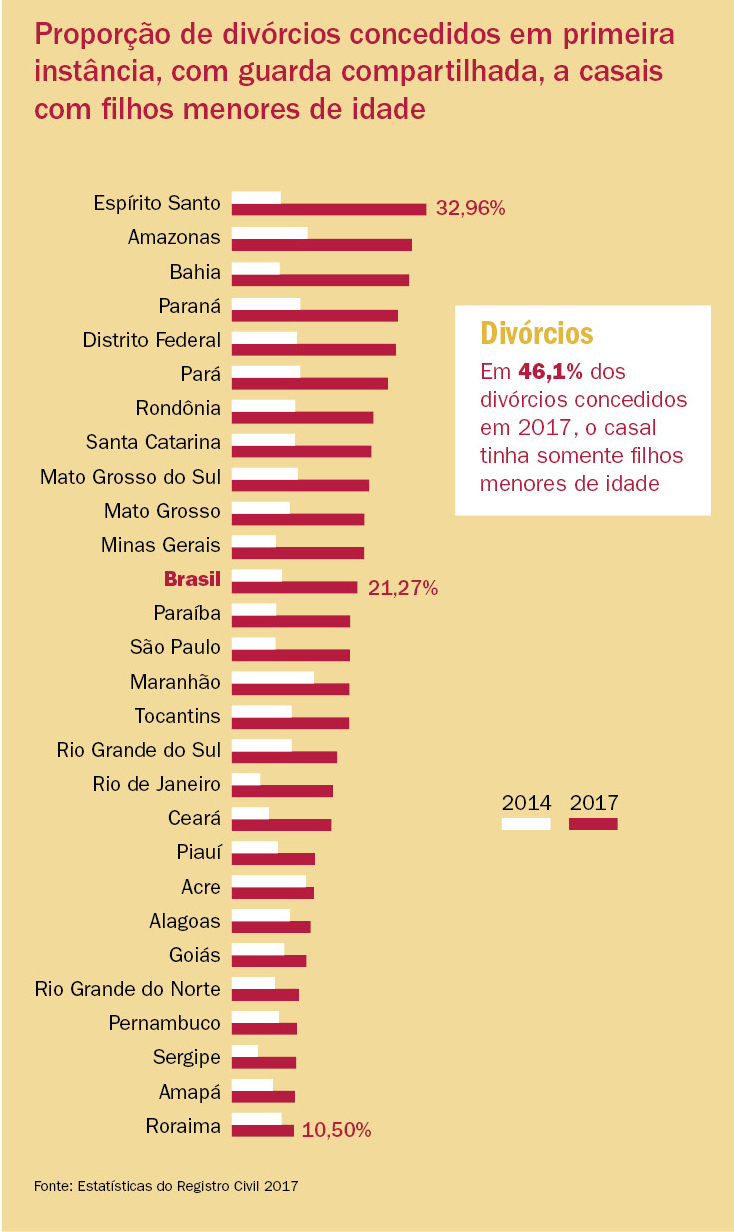Revista Retratos
Fathers share responsibilities in shared custody of children
March 11, 2019 02h00 PM | Last Updated: March 12, 2019 05h42 PM

Under the careful view of her father, psychologist Tiago Ferreira, little Lara Kali, 7 years old, hurry up to tie the laces of her skates to enjoy the sunny holiday in a park in Salvador. "What I most like to do with my father is to go for a stroll", tells her. Tiago shares the custody of his daughter with his former partner since 2013. "During my graduation in Psychology, I took part in some discussions that made me position politically as a man in this place and be more directly responsible for her custody. We made a deal and, ever since, she stays 15 days with me and 15 days with her mother", explains him.
A similar situation happens with the parents of three-year old Franz. Lawyer Fábio Visentin and the student Gabriela Vázquez, who live in Juiz de Fora (MG), had no doubts on choosing the shared custody regime since the beginning of the separation, about a year ago. From Sunday to Wednesday, Franz stays with his father and, from Wednesday to Sunday, with his mother. Nevertheless, time is flexible, according to the need. "When we decided to separate, we were sure that we would continue to be Franz´s family, even not living together anymore, that is why we never considered any other type of custody", stresses Fábio.
The new routine taught Franz´s father to value the time they are together. According to him, staying some days with his son is a moment of pleasure, rather than a duty. "I want to participate in everything", tells him. The mother highlights the advantage that the child does not suffer with the distance and, very early, he lives in a respectful environment. "Everybody benefits from a friendly relation between the families, even being apart. I suggest all the parents to test this routine, because many fathers do not establish a bond with the child as they think it is the mother´s responsibility", analyzes her.

The shared custody allows that Franz stays part of the week with his father, Fábio Visentin - Photo: Gabriela Vázquez
The reality of both families reflects a statistical information about Brazil: the share custody regime has been increasing since 2014, when Law no. 13,058 was sanctioned, prioritizing this type of custody in the cases where both parents are able to exert the family power. In Brazil, the number of records of shared custody nearly tripled between 2014 and 2017, changing from 7.5% of the divorces of couples with small kids to 20.9%, according to the IBGE´s Vital Statistics.
In 2017, the states with the highest indexes of shared custody were Espírito Santo (32.7%), Bahia (29.4%) and Amazonas (28.7%). Among the capitals, the highest percentages were recorded in Vitória-ES (61.2%), Curitiba-PR (54.6%) and Salvador-BA (54.4%). This figure could be even higher, since the information used in the survey takes into account only cases registered in registry offices, notary offices and family courts.
"It is important to explain that Vital Statistics surveys administrative records. We do not collect the marital status, but rather the civil status of persons. Stable unions do not change the civil status of the individuals and, therefore, they are not collected in the survey", explains Klívia Brayner, manager of the survey, adding that the survey was able to capture the growth of this type of custody as a consequence of the law.

What the law says
Alberto Gomes, judge and president of the Brazilian Institute of Family Law in Bahia - IBDFAM-BA, explains that the law enforces that the custody is shared, except when one of the parents does not want it. Even so, judges can enforce sharing if they assess that the parents can keep the relation without any prejudice to the child. He believes that the increase in the number of custody sharings is due to a bigger clarification of this subject, among other factors:
"Such increase not only involved the clarification of Law operators, but also the increasing understanding and education of persons, who began to recognize that everything they do reflects in their children", assesses him.
For another judge, Luiz Felipe Brasil, of the 8th Civil Chamber of the Court of Rio Grande do Sul, specialized in Family Law, the major challenge is to change the mentality of the parents: "They need to take on more tasks and responsibilities, but this is a mid to long-term social process", considers him. This is so true that, even with the rule, in most divorce cases of couples with underage children in Brazil, the custody still remains with the mother. Of the 158,161 divorces of couples with underage children in Brazil in 2017, 109,745 (69.4%) cases had the custody attributed only to the mother. In only 7,521 cases (4.8%), the custody of the children remained with the father.
Fathers not always assume their responsibility in the shared custody.
In spite of the law, there are still cases like that of Marli Cruz, who shares the custody of her daughter with the former husband "virtually". Divorced since 2005, Marli tells that her former husband hardly undertook her daughter. "He never went to a school meeting, neither took her to a doctor. Once I asked him to apply for her id, but he put it off many times".
Today, Marli´s daughter is 16 years old and hardly speaks with her father. "She never spent the Father´s Day with him, because he did not take her. In her birthday, I have to call him for him to wish her a happy birthday", tells her, revealing how sad she is with the situation. According to judge Alberto Gomes, cases in which the shared custody is distorted should be reported by means of a legal action.
"The right of conviviality is not of the parents, but of the child. If it is a duty of the father, it is a right of the child", highlights him, explaining that although the father resists to live together with his child, he finally gives in due to the insistence and penalties imposed by the Justice.
"I have already thought like this: no one can force anyone to love. But insistence works, mainly with children. The person should have a big behavior or mental problem for not being enchanted by a child", argues Gomes, adding that "the relation between father and son or daughter should be watered, and it can only be watered if they are close to each other".
Story published in the Retratos Magazine no. 16.
Get to know more about shared custody in the IBGE Minute about this subject.




















